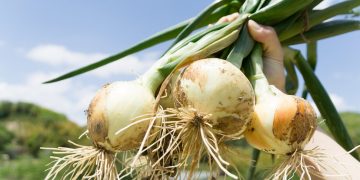In this article, we explore the pivotal role of zinc in plant nutrition and delve into effective strategies to optimize its usage for promoting healthy and thriving crops. Drawing on the latest data and scientific research, we discuss the importance of zinc as an essential micronutrient, examine its impact on plant development, and shed light on the consequences of zinc deficiency. Discover how optimizing zinc management can revolutionize farming practices and maximize agricultural productivity.
Zinc is an essential micronutrient that plays a crucial role in various physiological processes of plants, including enzyme activation, photosynthesis, and hormone synthesis. Its deficiency can severely impact plant growth and productivity, leading to stunted growth, poor root development, and decreased yield. Therefore, ensuring an adequate supply of zinc is vital for optimizing plant health and maximizing agricultural yields.
According to data from the International Zinc Association, zinc deficiency is a widespread problem in crop production globally, affecting a wide range of crops including cereals, legumes, and vegetables. In fact, it is estimated that over 50% of agricultural soils worldwide are zinc-deficient. The consequences of zinc deficiency are not limited to reduced yields but also extend to nutritional quality, as zinc is crucial for the biosynthesis of essential compounds such as vitamins and proteins.
To optimize zinc availability for plants, several strategies can be employed. Soil testing should be conducted to assess the zinc levels accurately. Based on the results, zinc fertilizers can be applied to replenish the deficient soils. However, it is important to note that excessive zinc can also be detrimental to plants. Therefore, proper dosage and application methods should be followed to ensure balanced zinc nutrition.
Development in zinc management techniques has shown promising results in improving crop productivity and quality. Research published in the journal Plant and Soil demonstrated that optimizing zinc fertilization increased the nutrient uptake, enhanced root growth, and ultimately led to higher yields in various crops. These findings highlight the potential of zinc optimization as a means to promote plant growth and maximize agricultural productivity.
The consequences of zinc deficiency go beyond reduced yields and lower nutritional value. Zinc is involved in numerous metabolic processes and plays a critical role in plant defense against diseases and pests. Adequate zinc levels enhance plant resilience and contribute to overall plant health and vigor.
In conclusion, understanding the role of zinc in plant nutrition and optimizing its usage is essential for achieving thriving crops and maximizing agricultural productivity. By monitoring and managing zinc levels effectively, farmers can overcome deficiencies, enhance nutrient uptake, and promote plant growth. Embracing these strategies will not only benefit individual farmers but also contribute to the overall sustainability and food security of the agricultural sector.
#ZincOptimization #PlantNutrition #Micronutrients #CropProductivity #SoilManagement #AgriculturalProductivity #NutrientManagement































